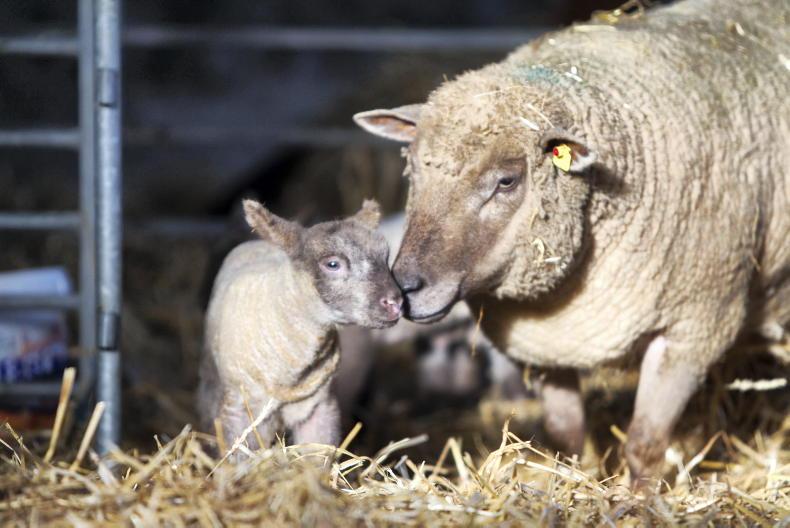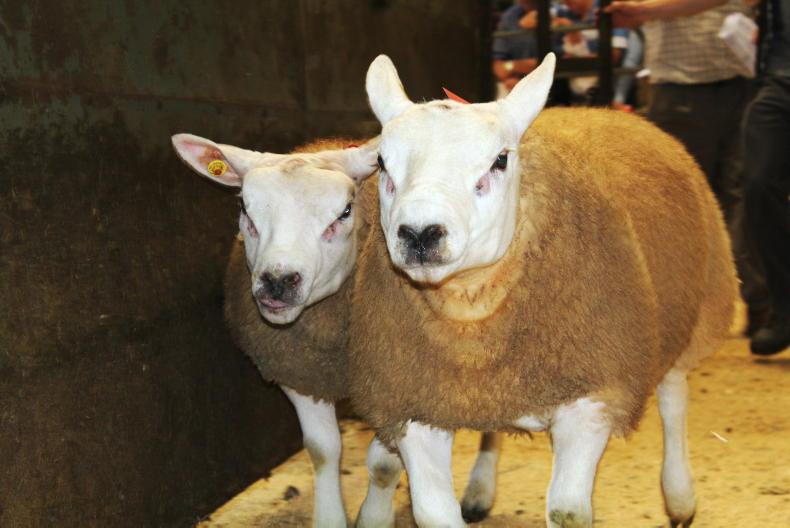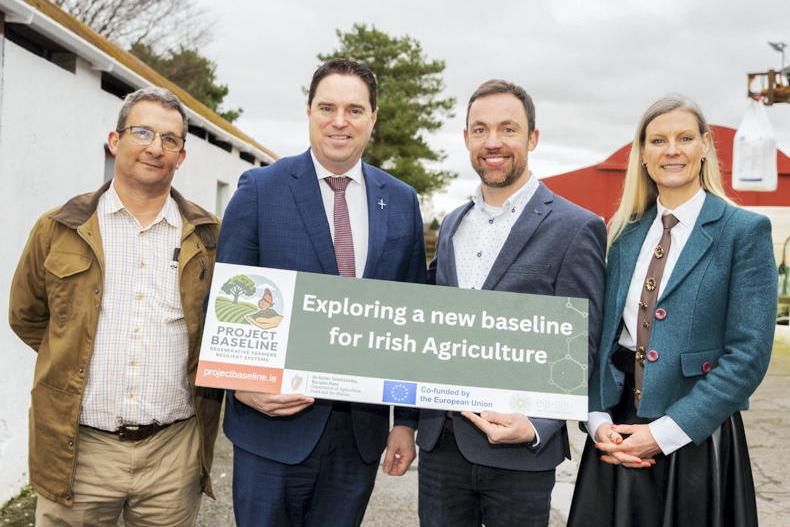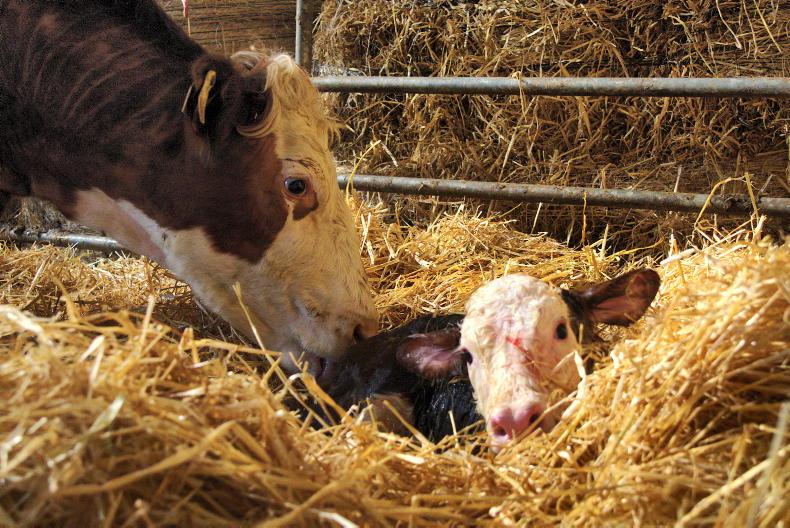Information provided to dairy and suckler producers by Sustainable Ruminant Genetics (SRG) Ltd will help herd owners make better informed breeding decisions, the organisation’s new chief executive has said.
In an interview with the Irish Farmers Journal, John Moore, who started in the new role on Monday, said he was enthusiastic about what lies ahead, but cautioned it will take time to get all the necessary structures in place.
One of the key initial tasks will be to appoint a service provider who will be responsible for building and managing a database that holds genetic information on individual animals and matches this information to various measures of performance.
Moore explained that the role of SRG is to be a broker between the service provider, government and farmers.
But ultimately, if the new body is to be successful it must get farmers to buy in at the start of the process.
“It will only work if as many as possible come on board and they give us the genetic information. We are keen to consult and meet people and get their views on how we take the initiative forward. We will look at collection of data from all sources,” said Moore.
Some data will be required from farmers, including the likes of calving ease or various measures around animal health, but SRG will try to keep this to a minimum.
“Where data on individual animal and enterprise performance is available from sources such as dairy and meat processors, NIFAIS and potentially livestock markets, we will look to harvest this. There is also the potential to utilise research data across issues such as meat eating quality or methane emissions of different sires,” he added.
Build on data
The aim is to go well beyond what current information is available to farmers.
“We want to ensure that we build on the current delivery of Profitable Lifetime Index (PLI) to the dairy sector. In the beef sector we want to widen the availability of Estimated Breeding Values (EBVs) beyond pedigree animals to commercial breeding animals.”
“This is about building on this base of existing data. It is about adding commercial information on to the information we already have,” said Moore.
Sampling
But all this commercial data must be matched to genetic information and to get the genetic information it will be necessary to roll out a sampling programme for both the existing cattle-breeding herd and newborn calves.
Moore acknowledges that taking an ear notch sample of animals is a significant ask of farmers. “We are currently investigating the best approach to deliver this,” he said.
In practice, he accepts that it might be a couple of years before a programme of sampling (genotyping) is actually rolled out. DAERA is to cover the cost of analysing the current breeding herd, plus the analysis of samples taken from the first calf crop. Longer term, this cost will then fall to farmers and industry.
The target for SRG is to ensure that genetic selection tools and benchmarking services can be made available to all beef and dairy herds in NI within 5 years.
The initial focus is firmly on cattle breeding but longer term, Moore said he is keen to bring the sheep sector on board.
Improving the sustainability of livestock production
The fundamental principle behind Sustainable Ruminant Genetics (SRG) Ltd is to help farmers identify those breeding animals which will perform best in their production system and ultimately have lower carbon emissions per litre or per kg of meat.
The potential to deliver significantly lower emissions is the reason the wider genetics programme is receiving substantial financial support from government.
“This is all part of a wider plan to ensure our livestock industry is sustainable into the future. It is the only show in town. We have to accept and adopt,” said Moore.
He also points out that breeding from more efficient animals will deliver a financial return to farmers.
Support payments
To encourage uptake, DAERA has indicated that provision of data to support the ruminant genetics programme will be a condition for those who want to avail of the new Farm Sustainability Payment (FSP), due to replace the Basic Payment Scheme (BSP) in 2025/2026.
Background to SRG Ltd
Sustainable Ruminant Genetics (SRG) Ltd is a non-profit initiative which is a partnership between the Ulster Farmers’ Union (UFU), Dairy Council for NI (DCNI), Livestock and Meat Commission (LMC) and NI Meat Exporters Association (NIMEA).
The chair of SRG is former UFU President Victor Chestnutt. The new CEO John Moore was previously a senior CAFRE beef and sheep adviser and is also well-known in pedigree beef circles, operating the successful Omorga Simmental herd from his base in Beragh, Co Tyrone.
Read more
DAERA sets out timeline for farm support
Change or face a bleak future, NI farmers told
Information provided to dairy and suckler producers by Sustainable Ruminant Genetics (SRG) Ltd will help herd owners make better informed breeding decisions, the organisation’s new chief executive has said.
In an interview with the Irish Farmers Journal, John Moore, who started in the new role on Monday, said he was enthusiastic about what lies ahead, but cautioned it will take time to get all the necessary structures in place.
One of the key initial tasks will be to appoint a service provider who will be responsible for building and managing a database that holds genetic information on individual animals and matches this information to various measures of performance.
Moore explained that the role of SRG is to be a broker between the service provider, government and farmers.
But ultimately, if the new body is to be successful it must get farmers to buy in at the start of the process.
“It will only work if as many as possible come on board and they give us the genetic information. We are keen to consult and meet people and get their views on how we take the initiative forward. We will look at collection of data from all sources,” said Moore.
Some data will be required from farmers, including the likes of calving ease or various measures around animal health, but SRG will try to keep this to a minimum.
“Where data on individual animal and enterprise performance is available from sources such as dairy and meat processors, NIFAIS and potentially livestock markets, we will look to harvest this. There is also the potential to utilise research data across issues such as meat eating quality or methane emissions of different sires,” he added.
Build on data
The aim is to go well beyond what current information is available to farmers.
“We want to ensure that we build on the current delivery of Profitable Lifetime Index (PLI) to the dairy sector. In the beef sector we want to widen the availability of Estimated Breeding Values (EBVs) beyond pedigree animals to commercial breeding animals.”
“This is about building on this base of existing data. It is about adding commercial information on to the information we already have,” said Moore.
Sampling
But all this commercial data must be matched to genetic information and to get the genetic information it will be necessary to roll out a sampling programme for both the existing cattle-breeding herd and newborn calves.
Moore acknowledges that taking an ear notch sample of animals is a significant ask of farmers. “We are currently investigating the best approach to deliver this,” he said.
In practice, he accepts that it might be a couple of years before a programme of sampling (genotyping) is actually rolled out. DAERA is to cover the cost of analysing the current breeding herd, plus the analysis of samples taken from the first calf crop. Longer term, this cost will then fall to farmers and industry.
The target for SRG is to ensure that genetic selection tools and benchmarking services can be made available to all beef and dairy herds in NI within 5 years.
The initial focus is firmly on cattle breeding but longer term, Moore said he is keen to bring the sheep sector on board.
Improving the sustainability of livestock production
The fundamental principle behind Sustainable Ruminant Genetics (SRG) Ltd is to help farmers identify those breeding animals which will perform best in their production system and ultimately have lower carbon emissions per litre or per kg of meat.
The potential to deliver significantly lower emissions is the reason the wider genetics programme is receiving substantial financial support from government.
“This is all part of a wider plan to ensure our livestock industry is sustainable into the future. It is the only show in town. We have to accept and adopt,” said Moore.
He also points out that breeding from more efficient animals will deliver a financial return to farmers.
Support payments
To encourage uptake, DAERA has indicated that provision of data to support the ruminant genetics programme will be a condition for those who want to avail of the new Farm Sustainability Payment (FSP), due to replace the Basic Payment Scheme (BSP) in 2025/2026.
Background to SRG Ltd
Sustainable Ruminant Genetics (SRG) Ltd is a non-profit initiative which is a partnership between the Ulster Farmers’ Union (UFU), Dairy Council for NI (DCNI), Livestock and Meat Commission (LMC) and NI Meat Exporters Association (NIMEA).
The chair of SRG is former UFU President Victor Chestnutt. The new CEO John Moore was previously a senior CAFRE beef and sheep adviser and is also well-known in pedigree beef circles, operating the successful Omorga Simmental herd from his base in Beragh, Co Tyrone.
Read more
DAERA sets out timeline for farm support
Change or face a bleak future, NI farmers told










SHARING OPTIONS